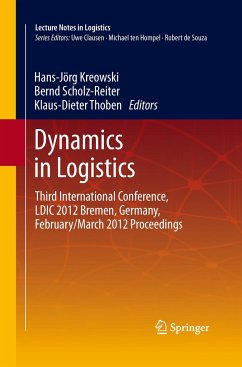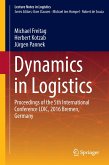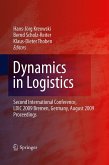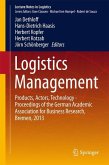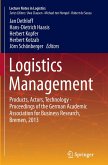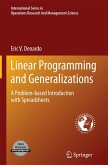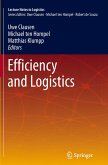The volume comprises the proceedings of the third International Conference on Dynamics in Logistics LDIC 2012. The scope of the conference targeted the identification, analysis, and description of the dynamics of logistic processes and networks. The spectrum ranged from the modeling and planning of processes and innovative methods like autonomous control and knowledge management to the new technologies provided by radio frequency identification, mobile communication, and networking. The growing dynamics in the area of logistics poses completely new challenges: Logistic processes and networks must rapidly and flexibly adapt to continuously changing conditions. LDIC 2012 provided a venue for researchers from academia and industry interested in the technical advances in dynamics in logistics. The conference addressed research in logistics from a wide range of fields, e.g. engineering, computer science and operations research.
The volume consists of two invited papersand of49 contributed papers divided into various subjects including transport logistics, routing in dynamic logistic networks, modeling, simulation, optimization and collaboration in logistics, identification technologies, mathematical modeling in transport and production logistics, information, communication, risk and failure in logistic systems, autonomous control in logistic processes, global supply chains and industrial applications, and the Internet of Things in the context of logistics.
The volume consists of two invited papersand of49 contributed papers divided into various subjects including transport logistics, routing in dynamic logistic networks, modeling, simulation, optimization and collaboration in logistics, identification technologies, mathematical modeling in transport and production logistics, information, communication, risk and failure in logistic systems, autonomous control in logistic processes, global supply chains and industrial applications, and the Internet of Things in the context of logistics.
"The proceedings succeed not only in providing the reader with a starting point for more in-depth research in specific areas, but also in painting a broader picture of the dynamism in logistics, especially in three burgeoning research areas for the future: next-generation RFID, predictive analysis, and IoT." (Klaus K. Obermeier, Computing Reviews, computingreviews.com, June, 2016)

